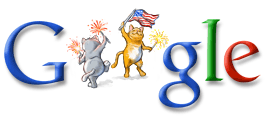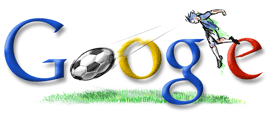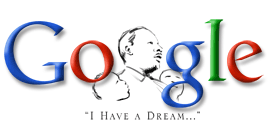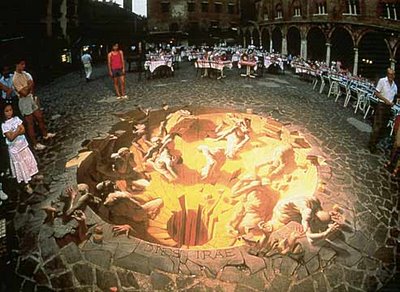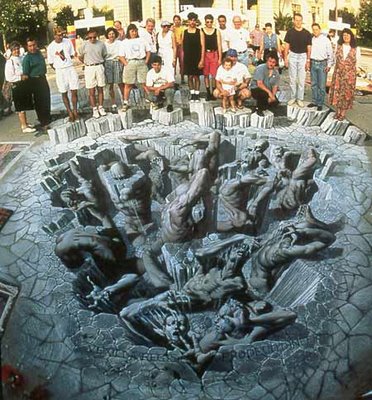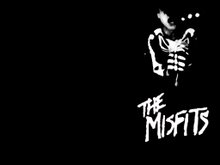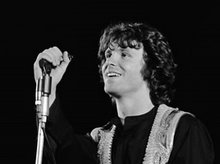Popcorn is a 1996 novel and play by the British writer Ben Elton.
Plot introduction
The book takes place in different parts of Los Angeles, US. The date is never actually specified, but various clues suggest it is set in the near future. Mostly the story takes place in the center of Hollywood. By showing different environments the reader can see the big differences between different social groups in America. From the rich people with guards, Bruce Delamitri for instance, to the less rich people like Wayne and Scout. But apart from that it doesn’t matter where it takes place, it could be in almost any other country with the same differences between classes. But since one of the most important things with this book is that the country has a huge movie industry where much circles around violence the country where the plot eventually could take place has to be a country like that.
Plot summary
The protagonist, Bruce Delamitiri, is an artist who works in the motion picture industry. Many people in the US think that, by making these movies, Bruce makes killing cool. They think that he encourages everyone who’s watching these movies to kill for fun. Bruce, on the other hand, defends himself by telling everyone that he doesn’t think that he encourages anyone to do anything. He says that there has always been violence but humans are not like robots, seeing something on the screen does not necessarily make us want to do it ourselves(p.13 “people get up from the movie theatre or the TV and do what they just saw”). He also claims that he is just showing existing violence. Unfortunately for Bruce there are two people, Wayne and Scout, who kill for fun. They are called the Mall Murderers because they kill in the way the characters kill in Bruce’s movies.
The novel begins with Scout and Bruce in their respective interrogation rooms, being questioned on the night before, the night Bruce won an Oscar. After the ceremony and after-party Bruce and a nude model (who asks that she be called an actress) named Brooke Daniels leave to Bruce's Hollywood mansion. She tricks and threatens him into promising her a place in his next movie. They then begin foreplay but the climax of the novel starts when Wayne and Scout visit Bruce’s house. They want him to tell the whole US that he is responsible for what they have done. In other words he has to tell everyone that he lied before, when he said that he wasn’t responsible for the violence in the US. In the end many people die, Wayne and Scout don't get what they wanted, Bruce loses many people he knew, for example his ex-wife and his daughter and no one wants to take the responsibility for these peoples' death.
Characters in "Popcorn"
- Bruce Delamitri – main protagonist, an artist
- Wayne – A killler
- Scout – A killer
- Brooke Daniels – A Model / Actress
- Velvet Delamitri – Daughter of Bruce
- Farrah Delamitri – Soon to be divorced wife of Bruce
- Karl Brezner – Bruce's producer
Bruce Delamitri is certainly not a hero, he is just an ordinary American except that he has got an Oscar for Best Director. He is about 30 years old and he has an ex-wife and a daughter. He is quite conceited, he wants everyone to love him and adore him. But on the other hand
"Bruce do not consider himself conceited about his work. He was the first to admit it was popcorn, but only if the other popular and corny works like Romeo and Juliet and Beethoven’s Fifth were popcorn too." (p.)
He wants to be laid-back street cool. If someone dares questioning his movies that person is a dork. In other words he is keen on showing his disdain for that person. He believes that everyone plays the victim, just to blame their faults on something or someone. Everyone looks for an excuse to fail. All these things make it hard to sympathise with him. He is really not a person I would like to get to know. It is hard to sympathize with anyone in this novel. The narration has made it impossible to sympathise with any one of the main characters. It is only the people in the background, the people you don’t get to know who you sympathize with, particularly all those who are murdered by Wayne and Scout.
Literary significance & criticism
Mood of the novel
It can be perceived that the author, Ben Elton, wanted to create a world full of irony (which is one of the foundations of movies, of which this novel is highly influenced, including dramatic and important sequences in screenplay format at times). The story is a satire of the society. We live in a society where no one wants to take the responsibility. A human can make mistakes, but he can always claim that it is because of something, perhaps he or she had a very miserable childhood. Perhaps it is someone else’s fault. All these contents create a witty and neutral mood. The story is full of witticism and when someone gets killed you feel nothing, no compassion, no anger, nothing.
Structure of the narrative
The narrator, Ben Elton, was born in 1959 in London. He could have been inspired to write this book with all the movies during the 1990s(the book is written in 1996), like for example Pulp Fiction. Pulp fiction contains a lot of violence, which the protagonists', in Popcorn, movies do too.
The book is told from an omniscient point of view. This makes it possible for you to catch many situations and the main characters' emotions. The story is created in retro perspective. It starts to show Bruce the day after it all happened. After that there are glimpses from everywhere in like 24 hours until the day after. The sentences are structurally straightforward but the vocabulary quite extensive. It is written in a mix of irony and wit. But it is probable the narrator wanted his work to be ironic.
Major themes
Popcorn deals with the theme of taking responsibility for one’s own actions, and how this has been lost in a modern society in which everyone sues everyone else.
The word "responsibility" is used frequently throughout the novel, in both narrative text and in dialogue.
Awards and nominations
It won the 1996 Crime Writers' Association's Gold Dagger Award.
Study Guide to Popcorn
By Ben Elton (Simon and Schuster 1996)
Key Concepts
Ethics, moral responsibility, society; film violence
Summary
Bruce Delamitri is a film director who makes very violent but stylish movies. ‘Bruce's movies are hip. Post-modern cinematic milestones, dripping with ironic juxtaposition. His killers are style icons. They walk cool, they talk cool. Getting shot by one of them would be a fashion statement’ (from the book cover).
Wayne and Scout are psychopaths who are killing people without apparent reason. Many people consider Bruce’s films to be the cause of the violence. As a way of avoiding the death penalty they decide that Bruce must take responsibility. They break into his house on Oscars Night and a terrible siege begins.
After the final bloodbath the arguments continue over who is responsible for a violent society—and this violence in particular.
WARNING: Contains strong language; violence; sex
Cultural significance
Popcorn stayed at the top of the hardback best-seller lists for quite some time before being released in paperback and has been translated and published widely around the world. It is also a successful West End play now at the Apollo Theatre, Shaftesbury Avenue, London W1 (directed by Laurence Boswell). Popcorn is also available as an audiobook read by John Sessions.
Mary Whitehouse praised Popcorn for its attack on sex and violence in the movies but Ben Elton has said "I don't think balanced people can be driven to be any different from what they are ... The suggestion is that those who are open to anti-social behaviour may be seduced into believing it is the norm ... I feel slightly exposed here because I am putting a point I don't entirely believe." (The Daily Telegraph, July 29th 1996).
Joel Schumacher (Flatliners, Falling Down, Batman Forever) has announced plans to direct the film version, and will apparently star Jeff Goldblum, Nathan Lane and Ellen Barkin.
Biographical background
Ben Elton was born in South London and studied Drama at Manchester University. His numerous television writing credits include The Thin Blue Line, Blackadder, The Young Ones and The Man from Auntie. He has written two hit West End plays and three previous internationally bestselling novels. His plays and novels have been widely translated. He tours occasionally as a stand-up comedian. Popcorn is his fourth novel. He is going grey, is married to Sophie Gare and lives in Notting Hill.
Other books by Ben Elton
Ben Elton, Batchelor Boys - The Young Ones Book
spin off of the TV series which Elton co-wrote with Rik Mayall and Lise Meyer
Ben Elton Stark (1989)
His first novel which sold massively in Britain and Australia. It was reprinted 23 times in its first year of publication, and sold over a million worldwide.
Ben Elton, Gasping (1990)
Based on his successful West End play starring Hugh Laurie
Ben Elton, Gridlock (Warner Books 1991)
Ben Elton, Silly Cow (1993)
Ben Elton, This Other Eden (Simon and Schuster 1993)
Other resources on these ideas
Ben Elton FAQs
The End of Violence dir. Wim Venders
Overview
The book opens with the narrative switching between Bruce Delamitri being interviewed by the police and him being interviewed by Oliver and Dale on Coffee Time USA the morning before. Most of the book is the events that took place in the intervening 24 hours.
On Coffee Time USA he is quizzed over a series of killings that had taken place, apparently copying killings depicted in his latest film Ordinary Americans. He is expected to receive the Oscar for Best Director that night but a controversy is raging over whether or not his films have given rise to this violence or whether they merely show life as it is. Bruce maintains that it is the latter.
The narrative then moves to switching between Bruce’s appearance on Coffee Time USA and the movements of Wayne and his pretty waif-like girlfriend Scout. They are known as the Mall Murderers and have been killing people across America in exactly the same way as the couple in Ordinary Americans.
Bruce protests in strong terms that the association between his films and these killings is an invention of news editors; he maintains that people aren’t influenced in such a direct way by what they see. He insists that ‘artists don’t create society, they reflect it. And if you don’t like that, don’t change us, change society’ (p. 14). Wayne and Scout are watching this in their motel room hatching a plan.
Bruce spends the afternoon before the Oscars addressing the film studies course at the University of Southern California where he himself studied. He impresses the students but not the dusty old Prof. Chambers who asks some very penetrating, critical questions and gets the better of a very angry Bruce.
Bruce arrives at the Oscars in a limo which crawls through the heavy traffic. He watches the crowds staring and straining to see who’s inside. ‘They couldn’t see anything: all the limos had mirrored windows, so all they could see was themselves… That was it! The whole truth in one startling image. Why were Bruce’s movies so successful? Because people saw themselves reflected in them. Maybe better-looking and a little cooler but none the less themselves, with their fears, their lusts, their most secret desires and fantasies… He was a mirror. He did not create a world for people to watch; they created a world for him to film’ (p. 54).
His acceptance speech at the Oscars is embarrassing waffle. At the same time, Wayne and Scout are moving on having murdered two people at the motel.
At the post-Oscars party Bruce drinking hard. He is rude to everybody—especially to a young woman named Dove who he accuses of making up ‘the terrible emotional abuse’ she’d suffered. Bruce claims to have an addictive personality and therefore was not responsible for his drinking. He rants about the victim culture and the lack of responsibility. Then he sees a Playboy model/aspiring actress who he takes home intending to sleep with her.
What they do not realise until they start to undress is that Wayne and Scout are in the house. Some hours later Bruce’s almost ex-wife, Farrah and their daughter Velvet arrive. Wayne phones the TV networks and soon a convoy of media vehicles and police arrive at the house and a siege commences. The Police Chief and the NBC chief vie with each other as to who is in overall charge of the situation.
Waynes’ plan is for Bruce to go live on every TV network to say that he is responsible for the Mall Murderers’ killing spree because his films had such a profound impact on them. That way Wayne and Scout, though guilty, are not ultimately responsible and will avoid the electric chair. If he won’t do it then he will kill Farrah and Velvet Delamitri and Bruce himself. Eventually Bruce and Wayne agree to debate it together on TV. Wayne has asked for a two-person news crew to come to the house—without clothes—in order to film this as well as a ratings computer so that he can see how many people are watching.
As the debate goes on, the ratings gradually drop until Wayne announces that he will kill Farrah in one and a half minutes. At the end of the time he does shoot her and the Police SWAT team start to enter the house. As soon as Wayne learns of this he says that he and Scout will give themselves up with no further bloodshed on the condition that everyone watching turns off their TVs. If they keep watching he will kill everyone in the room.
The SWAT team move in and there is a bloodbath. Bruce survived but his career didn’t; Scout also survived. Brooke, Velvet and the news crew as well as Wayne were killed. The epilogue of the book is a catalogue of litigation: everyone is blaming everyone else and suing them for damages over what happened. The book concludes, ‘So far no one has claimed responsibility.’ (p. 298).
Ideas for discussion
1) With which of the characters in the book does Ben Elton seem to have the most sympathy?
2) What do the various characters believe about human moral responsibility? What basis do they have (or are likely to have) for these beliefs?
3) What elements of truth and error are there in Bruce Delamitri’s argument that he is only holding a mirror up to society, not creating it?
4) What purpose do you think the confrontation between Prof Chambers and Bruce Delamitri serves in the narrative?
5) Which side of the debate over violence in the movies do you think Ben Elton is on at the end of the day?
6) To what extent has Elton glorified violence in his book in exactly the way the book seems to condemn in films? Is his use of violence legitimate because of the point that is being made?
7) Why do people want to see violent films? Does the public get what it deserves?
8) The controversy about film violence resurfaces fairly often. How could you bring a Christian angle to a conversation with a non-Christian friend when it is next in the news?


